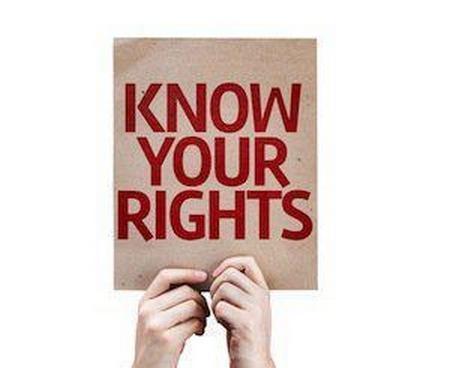Do Undocumented Immigrants Have Any Rights?
 Immigration is a hotly debated topic nowadays, with viewpoints ranging all over the spectrum. However, the intensity of the debate can lead to serious misinformation being spread as fact, and it can have extremely negative effects on real people’s lives. One of the questions that has come up is the issue of whether undocumented immigrants even have rights to do things that most United States citizens consider elementary. The answer to such a question is important.
Immigration is a hotly debated topic nowadays, with viewpoints ranging all over the spectrum. However, the intensity of the debate can lead to serious misinformation being spread as fact, and it can have extremely negative effects on real people’s lives. One of the questions that has come up is the issue of whether undocumented immigrants even have rights to do things that most United States citizens consider elementary. The answer to such a question is important.
The Fourteenth Amendment
As far back as 1896, in the case of Yick Wo v. Hopkins, the Fourteenth Amendment was held to protect the rights of immigrants. To be sure, the majority opinion in the case stated that “The Fourteenth Amendment to the Constitution is not confined to the protection of citizens.” While this jurisprudence is a good foundation upon which to base law, the question then comes up as to what rights the Fourteenth Amendment actually guarantees.
The amendment itself states that no one will be denied equal protection under the law, nor anyone deprived of life, liberty, or property without due process of law. The latter is fairly self-explanatory, and has been alluded to in Supreme Court jurisprudence countless times, enforcing immigrants’ rights under the Fifth, Sixth, and Fourteenth Amendments.
The definition of ‘equal protection,’ on the face of it, is also easy to parse, but it has become more complex over the years. Certain rights are reserved for United States citizens, such as voting and possessing certain types of firearms. Also, rights and privileges may be denied to immigrants (both documented and otherwise) if it can be proved that the discrimination furthers an ‘important’ governmental interest by means that are substantially related to that interest. Still, despite these disadvantages, the fundamental rights are protected.
State Law-Based Rights
In terms of specific rights based in state law, the picture becomes much more complex. Illinois has laws on the books that do not exist in other states, and vice versa. It is critical that an undocumented immigrant be aware that some rights they may possess in one state may not be valid in another state.
An example of how convoluted the situation may become can be seen in the question of higher education. Indiana passed legislation in 2011 that bars undocumented immigrants from receiving either in-state tuition rates or financial aid/scholarships, regardless of the student’s residence in the state or their eligibility for such aid. However, Illinois, the next state over, does permit in-state tuition rates to be given to undocumented students if they qualify for it. Similar disparities exist in questions involving, for example, the ability to obtain a driver’s license (it is possible for the undocumented in Illinois, but not in Indiana).
An Attorney Can Help Clarify
The interplay of rights and responsibilities between state and federal governments can be confusing at the best of times. The services of a dedicated immigration attorney can make a difference. The skilled Chicagoland immigration attorneys at Mevorah & Giglio Law Offices can help you understand your rights, and can counsel you if you have wound up in trouble. Contact our office today to set up a free consultation.
 English,
English,
 Spanish,
Spanish,
 Polish,
Polish,
 Urdu
Urdu













 Make a Payment
Make a Payment



